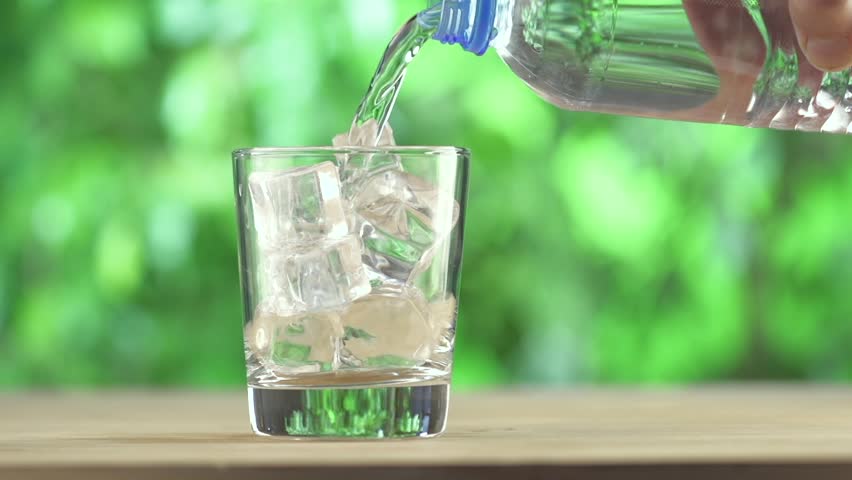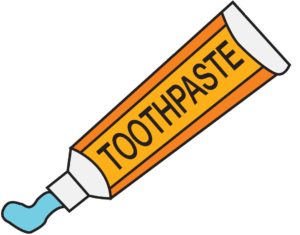Gosh, why is my mouth so dry? The question of what causes dry mouth doesn’t seem too concerning, right? Well if it happens occasionally, it probably isn’t. But if it happens everyday, should you be concerned? Let’s talk about it.
Dry mouth is a condition that is medically called xerostomia. Yes, everything has fancy technical terms. What happens with xerostomia is that the salivary glands which are usually active continuously, have reduced saliva output. Saliva is probably something you never think much about, but there are some health consequences to poor saliva production that you should be aware of. We’ll discuss more on that later.
And I know you’re probably thinking to yourself, how many people could xerostomia possibly affect? Well surprisingly a large part of the world. Studies have shown the prevalence of dry mouth in the population ranges from 5.5% to 46%. That’s unfortunately a large part of the world that feel their mouth is as dry as the Arizona desert.
What Causes Dry Mouth
We talked about how dry mouth is caused by reduction of salivary gland output. When I explain that, most people are thinking, my salivary glands can decide to reduce their function? The truth is, they can. And yes, the salivary glands are an autonomous body part that functions without conscious control. However, just like the heart or the kidneys, the environment we expose them to does affect how they function.
The fact of the matter is, as odd as it sounds, we indirectly control how much saliva we produce. The amount of saliva we produce is directly related to many of the things in our lifestyle and environment.
The good news about dry mouth is that it’s usually easy to determine the cause. I’ve itemized the causes of dry mouth down to 7 categories. If you are experiencing dry mouth, check the list to help pinpoint any causes for the dryness. Here are the top causes of xerostomia:
Chronic dehydration

If you are having dry mouth symptoms, the first thing you should do is begin monitoring your water intake. This ones an easy fix. It makes perfect sense. Increase your water intake and you should have more hydration for the salivary glands to make saliva. In an article on healthline, the experts recommended eight 8oz glasses consistently each day. If you increase your water and still have dry mouth symptoms, you should look further down the list for possible causes.
Side effects of prescription medications, alcohol, or drug use
One of the most common, yet surprising, causes of xerostomia is associated with treatment of anxiety or depression. With nearly 25% of the US adult population being treated with anti-anxiety and antidepressant medications, it affects a large part of the population. All of the medications for anxiety or depression cause a drying effect on the mouth as a side effect, some worse than others. If you are prescribed a psychiatric medication and are having noticeable side effects speak with your physician about potentially altering the medication or dose.
Diet

Nutrition has an impact on what causes dry mouth. The biggest pointers I can give you are to limit salty foods, reduce high sugar food and drinks, and limit caffeine.
Age-related
As we age, the salivary glands begin to function less efficiently. This generally begins in the age decades of our 70s, 80s, or 90s.
CPAP use for sleep apnea

Sleep apnea is a breathing condition where the sleep is repeatedly interrupted by intervals of lack of breathing and oxygen. Sleep apnea is linked to increase risk of cardiovascular disease, memory problems, and daytime sleepiness. A common treatment for sleep apnea is a CPAP (continuous positive airway pressure device). Although CPAPs greatly reduce the risks associated with sleep apnea, the design of air continuously running through the mouth creates a drying effect at night. If you are using a CPAP and experiencing dry mouth, speak with your physician about possible options such as a CPAP that incorporates a humidifier.
Radiation therapy
Dry mouth is unfortunately a side effect of radiation therapy and chemotherapy during cancer treatment. The good news is that the dry mouth symptoms often improve 6 months after treatment is completed.
An autoimmune salivary gland disorder
Out of all the causes of dry mouth, autoimmune disorder is the one that we have least control over. It is also fortunately the most rare. An autoimmune salivary gland disorder is when the body views the salivary gland as foreign and begins to react against it. An example condition is called Sjogren’s syndrome which affects about 0.2% of the population.
Why Does Dry Mouth Matter?
If you are experiencing dry mouth, you have a sense of how the feeling can be frustrating during every day life. But it’s more than just that. Dry mouth causes rapid destruction of the teeth.
The ideal environment of the mouth contains saliva for two reasons—saliva serves as a natural rinse cycle for the teeth, and saliva helps to dilute the acidity of the mouth. Without saliva, food particles and bacteria remain on the teeth significantly longer than they should which accelerates destruction of the enamel.
Here’s how it all happens. We all have bacteria that naturally live in our mouths. The bacteria of the mouth produce an acid as part of their metabolism. Acid is the primary cause of tooth decay.
During normal function, saliva serves to dilute and neutralize the acid on our teeth, but without saliva, the acidic environment rapidly deteriorates the teeth. This is how a patient can go many years without a single cavity, but then have several in a year, even with good hygiene habits. There was more acid on the teeth due to saliva changes. The lack of saliva is powerful.
Here’s where it gets even more interesting. Without saliva we are lacking a primary defense mechanism that the body has designed for us. Yes, the saliva washes the teeth from harmful substances, but that’s not all. The saliva also serves as a first line of defense against bacteria and viruses. It contains several types of antibodies and immune system components that help to fight any infectious disease arriving from the mouth. So therefore, the saliva functions to protect not only oral health, but overall health. If you are having dry mouth that last for more than a week discuss your symptoms with your physician or dentist.
And it doesn’t stop there
Dry mouth seemingly is a pretty basic topic, but not the case. If you have dry mouth you are prone to numerous other conditions that come along with it long term. Some of the conditions that form when the mouth is dry are:
- Mouth sores
- Yeast infection in your mouth (the technical term is: thrush)
- Mouth Sores, cankers, or cracked lips
- Poor nutrition from having problems with chewing and swallowing
- Feeling of stickiness in your mouth
- Bad breath
- A changed sense of taste
- Problems wearing dentures
Fluoride: Toothpaste’s Best Superpower for Dry Mouth

Let’s talk toothpaste for a minute. We talked about how people with dry mouth have less ability to naturally rid their teeth of bacteria that produce acid. So at least until the dry mouth is cleared up, increased toothbrushing and rinsing will be key.
The big news? Brand and ingredients don’t matter; what matters most to combat the harmful effects of xerostomia is the fluoride content of toothpaste and mouth rinses you use, and how often it is used.
The reason is simple. Remember how we discussed that tooth decay is caused by acid produced by bacteria? Fluoride blocks a critical step that the bacteria in our mouth use to produce acid. The result is—less acid production by the bacteria.
The more often that bacteria are exposed to fluoride, the less destructive acid they can produce on the surface of the teeth. A patient that is diagnosed with xerostomia should speak with their dentist about their toothpaste.
There are even prescription toothpastes that contain 5000 ppm units of fluoride and prescription mouthrinses which are significantly stronger than available over the counter.
Simplifying it: What You Need to Know about Dry Mouth
To put it all together, I’ll give you five pearls to serve as first priority guidelines for figuring out why you have dry mouth and also to help prevent the negative effects it can have on your oral health and overall health. The goal is to prevent you the long term health effects that build up over time and prevent you from having a less than stellar report at the dentist. Here are five xerostomia pro tips to help you keep it all straight:
Pro Tip #1: Hydrate. Hydrate. Hydrate.
If your mouth is dry, depriving yourself of water definitely won’t support a resolution. Make sure you are receiving the recommended amount of water per day which is typically around 8 cups of water for most adults.
Pro Tip #2: Swish like your teeth depend on it.
It’s as simple as taking a sip of water and swishing it thoroughly in your mouth after every snack and meal. Swishing will help to rinse away additional food and bacteria which are clinging around the teeth.
Pro Tip #3: Chew sugar-free gum often.
Sugar-free gum is a trick to mechanically cleanse the teeth throughout the day, and it also helps to stimulate saliva production as you chew. The positive affect is a cleaner mouth with higher pH environment. Higher pH neutralizes harmful acids that sit on the teeth.
Pro Tip #4: Be mindful of diet and alcohol
Keep your diet in check by monitoring intake of salts, sugars, and alcohol to make sure they are kept to an acceptable level.
Pro Tip #5: Review your prescriptions with your physician
If you take perscriptions, particularly for anxiety or depression, and are having severe symptoms of dry mouth, speak with your physician. Often dry mouth is a side effect of medications. The dry mouth can be reduced simply by having your physician alter the medications you are taking regularly.


